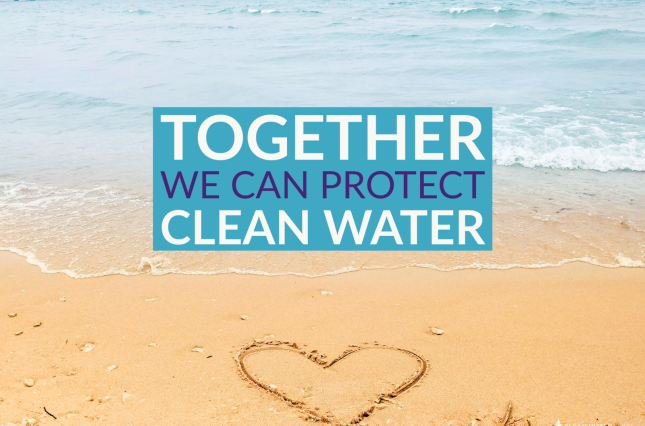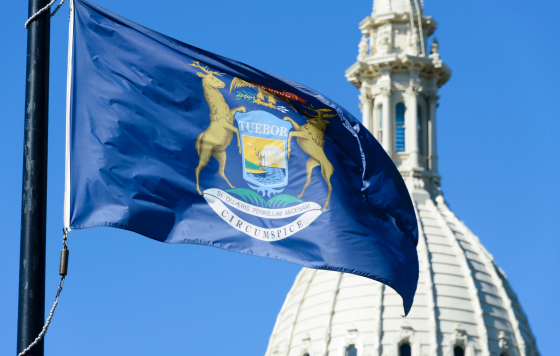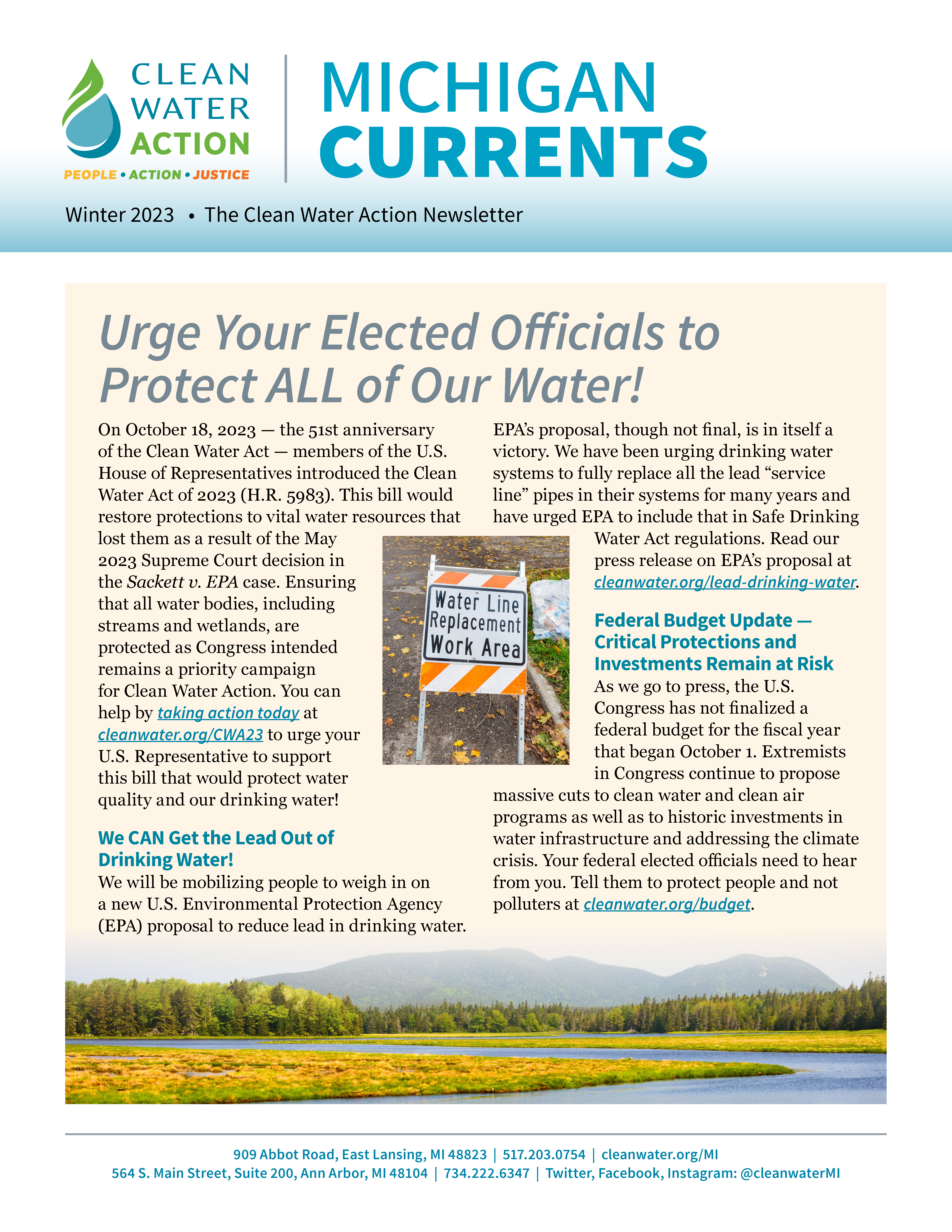In This Issue:
- Water Affordability Package Advances in MI Legislature
- Holding Polluters Accountable in Lansing
- Enbridge Line 5 Propaganda is Everywhere, and So Are We
- Progress On Public Power
- National News: Urge Your Elected Officials To Protect ALL of Our Water!
- Download a PDF of this issue
Water Affordability Package Advances in MI Legislature
In November, hearings were held in both the Michigan State House and Michigan Senate on a landmark bill package to ensure that lower income residents have access to affordable drinking water. The package, led by Senator Stephanie Chang, has been a top priority for Clean Water Action.
Right now, roughly 1 in 10 Michigan families are burdened with unaffordable water bills. The legislative package under consideration would ensure that Michigan residents making less than 200% of the federal poverty line would not be required to pay more than 3% of their income towards water. The package also includes provisions to protect residents against water shutoffs, decriminalizes turning your own water back on after its been shut off (currently a 5 year felony), enhances water rate protections for renters, and creates a fund to pay for the program.
If this legislation passes, Michigan will be the first state to create a state level water affordability program. Almost a decade ago, United Nations officials declared the water shutoff situation in Detroit to be a human rights crisis. Since then, the tireless work of local advocates like the People’s Water Board Coalition, MI Welfare Rights Organization, and many others have been leading the fight for affordable water across Michigan. We are excited to work with these partners as we take the next big step - getting this legislation passed and signed into law!
➡️Take Action
Take action today! Tell your State House Representative and State Senator to support the water affordability package at cleanwater.org/MIwateraffordability .
Holding Polluters Accountable in Lansing
From green ooze spilling out onto highways to factories dumping dangerous chemicals into our waterways, the need for polluter accountability seems to grow with each passing year. In Michigan we have identified over 24,000 contaminated sites. They are located in literally every county in the state and risk the health of residents and our environment alike.
Recent polling shows that 95% of Michigan voters think we need to do more to hold polluters accountable. In October, Clean Water Action joined with lawmakers and allies to celebrate the introduction of legislation to begin increasing corporate accountability for pollution. This seven bill legislative package is being led by Senator Jeff Irwin and Representative Jason Morgan who have seen the negative impact of pollution from contaminated sites migrating into waterways in their districts firsthand.
With so much public support for holding polluters accountable, these bills should be easy to move in Lansing. After all, the impacts of industrial pollution affect every single legislative district. So why has it been so difficult to get legislative action on this pressing issue? Unfortunately, lax legislative transparency laws and millions of dollars flowing from corporate boardrooms to our political system tend to have a big impact in favor of corporate polluters. Lobbyists and leaders from major polluting corporations are good at making their voices heard in the legislative process. As we move into the 2024 legislative session, it is time for the rest of us to make our voices heard.
➡️Take Action
Help us hold polluting corporations accountable by taking action today at cleanwater.org/MIpolluterpay
Enbridge Line 5 Propaganda is Everywhere, and So Are We
The sounds of waves lapping the shoreline, water trickling over river stones, and children laughing as they splash and play provide audial backdrop to a soothing voice extolling the virtues of protecting the fresh waters of the Great Lakes. That reassuring voice proceeds to present Enbridge, Inc. as altruistic caretaker of our shared fresh waters.
The advertisement takes care not to mention how their Line 5 oil pipeline is now 70 years old, well past the projected life expectancy of 50 years, and has leaked over 1 million gallons of oil along the its 645 miles. The message instead is focused on the good will and trustworthiness of Enbridge as environmental steward and champion, with the proffered proof being the Canadian oil giant’s proposed tunnel project designed primarily to keep the profits flowing in the short-term. Nor is it made clear that their 70 year old oil pipeline is currently operating without approved easements, in trespass on Michigan and on tribal lands. Certainly, the radio spot fails to address how the proposed concrete tunnel underneath the bedrock of Michigan’s waters has yet to answer to dangerous flaws in the engineering plans, the shortcuts taken with geologic surveys, or the admitted slurry pollution stew such a project would spew into the Great Lakes. Instead, the captive audience to Enbridge’s millions in propaganda spending is expected to rest assured that over 23 millions of gallons of oil daily running underneath the meeting of Lakes Huron and Michigan, right beside the iconic Mackinac Bridge, is nothing to worry about because Enbridge has a plan that will above all else keep the oil and their own profits flowing.
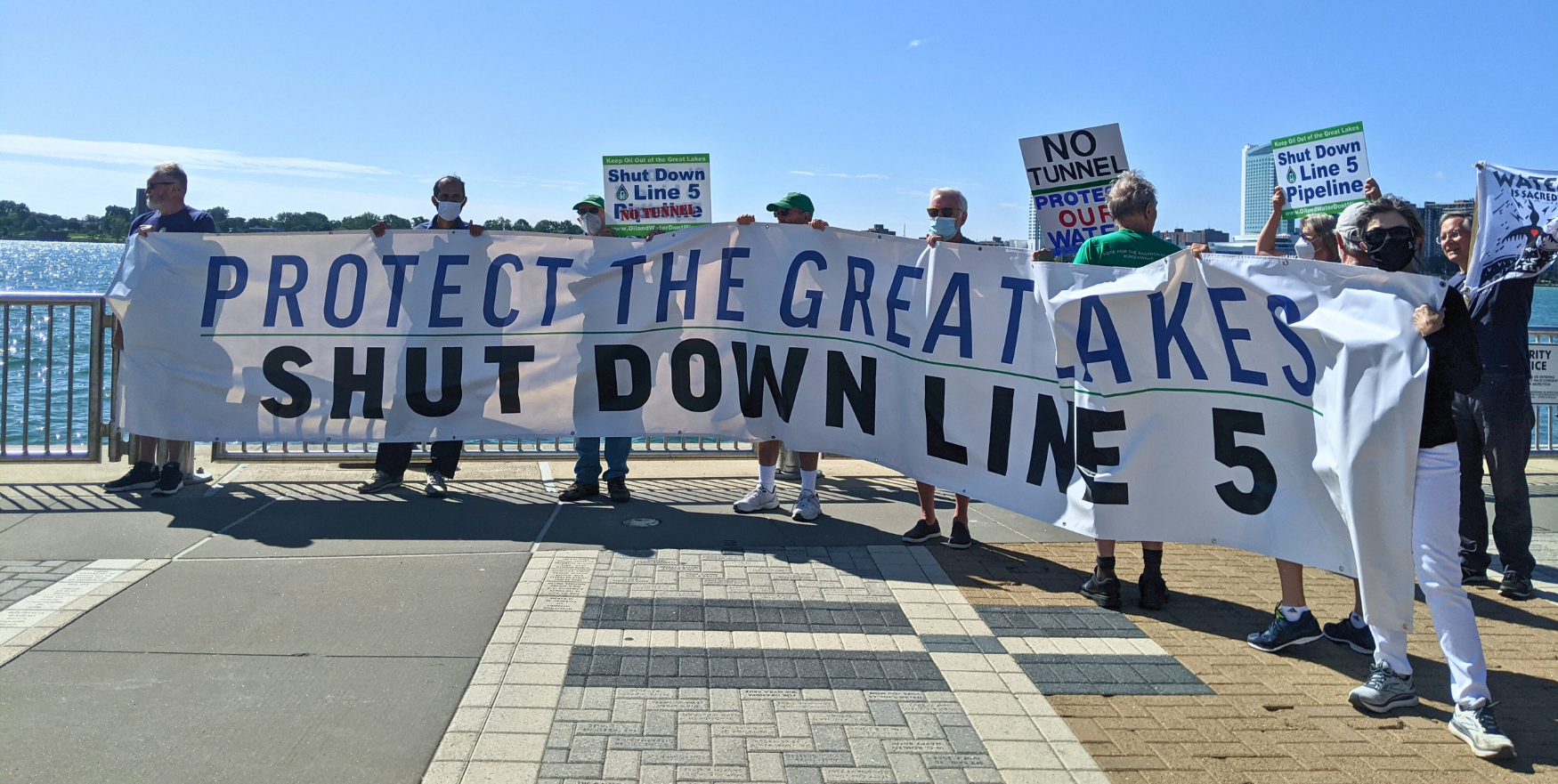
I learned about this radio advertisement from my daughter, who was at the thrift store on half-off day looking for affordable Winter clothing. Like so many everyday Americans, she and her fellow shoppers were focused on their personal economic struggle, and therefore not likely to interrogate a radio ad that essentially is offering a mental break of “nothing to see here, nothing to worry about, this is all taken care of.” Indeed, she had initially thought that the radio ad was the work of an actual environmental advocacy organization like Clean Water Action. So convincingly does Enbridge endeavor to gaslight an unsuspecting audience into viewing their corporation as the Water Protectors, that the actual grassroots struggle to defend the water becomes recast as spoilers of sustainability. Enbridge’s strategy to appropriate the language of environmental activist movements is all the more egregious for how purposefully this is intended to co-opt the power of Indigenous-led resistance to instead serve their profits-over-people agenda that makes a mockery of tribal sovereignty and cultural survival.
Everyday the Canadian corporate behemoth Enbridge pushes Line 5 oil across 645 miles of Michigan lands, crossing numerous waterways including underneath the heart of the Great Lakes at the Straits of Mackinac, is another day of potential catastrophe. Yet, this also means we have a daily opportunity to set the record straight by learning the facts and extolling them whenever the occasion arises. Enbridge invests millions of dollars in their public relations con game. They put people of color on billboards, while fossil fuel interests precipitate the daily poisoning and harassment of frontline communities. They extol the virtues of job creation, while doing everything they can to maneuver out of hiring local union labor and simultaneously endangering tourism and fishing economies. They claim to align with Anishinaabe communities, while ignoring the demands of both Bad River tribe in Wisconsin and Bay Mills Indian Community in Michigan to get off tribal lands. They target Great Lakes communities with the reassuring language of a caring big brother, while ignoring the behest of Michigan’s duly elected Governor and Attorney General to cease and desist endangering the public trust waters, economic viability, and quality of life that Michigan voters and residents count on our governmental public servants to protect.
An elder from the Quaker community recently lamented to me that she feels like she is not able to stand up against Enbridge, as her physical limitations prevent her from attending protests and rallies. When I mentioned the importance of Letters to the Editor, she said she did not see herself as a great writer. I then noted that even if she just tells one person one true thing about Line 5 that the person did not know before, that is incredibly valuable, because then the person can do the same. To this, she readily agreed, and gladly accepted this new view of herself as an activist.

So, the next time you see or hear one of Enbridge’s slick advertisements, don't be shy about setting the record straight with the facts about Line 5, the flawed tunnel project, and the truth about Enbridge as a self-serving corporation operating illegally on State and tribal lands, with a terrible track record of oil spills, short-cuts, and poor to no accountability. You may even find yourself turning to the person next to you in a thrift store, saying “they’re lying,” and experiencing this crucial truth: that for all their millions of dollars, Enbridge will never be able to match the latent people power we can all help unleash. Side by side, facing the truth, and uniting in our shared responsibility to Shut Down Line 5: one fact-check at a time.
We need all hands on deck to help in our work to shut down Line 5. ➡️ Learn more, take action, and sign up to volunteer at cleanwater.org/ShutDownLine5
Progress On Public Power
In the wake of energy legislation in Lansing, an Integrated Resource Plan from DTE, and a Phase I Feasibility Study in Ann Arbor exploring municipalization, it’s clear that Michigan residents are ready to hold polluters accountable and transition to a green economy..
The long awaited Ann Arbor feasibility study was presented this fall to a room full of organizers and residents of the city. The aim of the study was to look into major options for reaching the city’s goals of net zero carbon by the year 2030. What’s clear is that the A2Zero goal is not going to be met by DTE’s current renewable generation commitments. There are several options for further purchase of renewable energy or creating new generation, and further feasibility studies are warranted to identify the best options for Ann Arbor.
Clean Water Action and our local allies are calling for the city council to fund a phase II feasibility study into renewable options. The city must also begin to pursue public ownership of grid resources, and look toward long term, effective solutions to move us toward electrification.
Our work on energy democracy and municipalization is not limited to Ann Arbor though. Clean Water Action has been able to dig deeper on the issue of municipalization with our partners fighting for utility accountability in Highland Park, MI and the Union of Concerned Scientists among others. We are pleased to present Coming Together for Equitable Public Power, a collaborative project bringing lawmakers, activists, community members, and energy service providers together to discuss public ownership models and how to build an effective, publicly owned grid. This project includes our paper with insights from across the midwest, a series of blogs to follow our journey, and a full video recap of our public power convening.
Right now it is more crucial than ever to educate yourself and your community on the basics of how we are generating and distributing power as well as the history of power generation in our country. Our grid is outdated and in disrepair due to lack of investment while each year we are hit with increasingly more extreme weather. With rising rates and waning reliability we need to develop new ways of thinking about our grid, the responsibilities of power generation and how to create systems that support our communities. ➡️ Learn more at cleanwater.org/PublicPower.
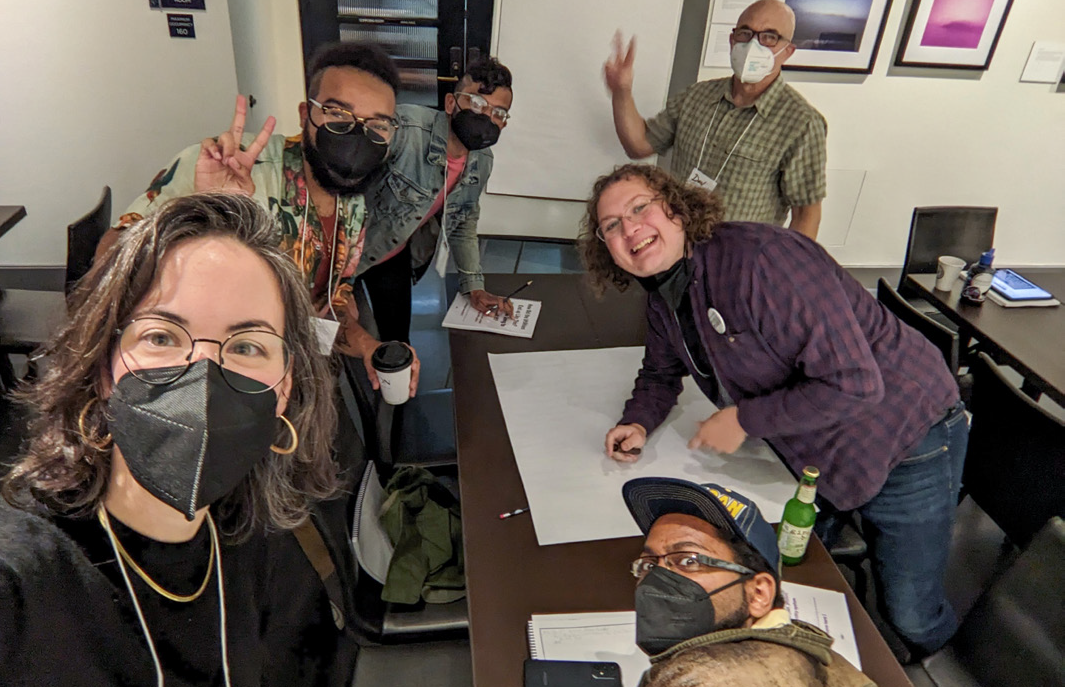
⬆️Michigan Public Power Advocates mapping the history of DTE, our major Investor-Owned Utility in SE Michigan
Urge Your Elected Officials to Protect ALL of Our Water! The Clean Water Act of 2023
On October 18, 2023 — the 51st anniversary of the Clean Water Act — members of the U.S. House of Representatives introduced the Clean Water Act of 2023 (H.R. 5983). This bill would restore protections to vital water resources that lost them as a result of the May 2023 Supreme Court decision in the Sackett v. EPA case. Ensuring that all water bodies, including streams and wetlands, are protected as Congress intended remains a priority campaign for Clean Water Action. You can help by urging your U.S. Representative to support this bill that would protect water quality and our drinking water! Take Action: cleanwater.org/CWA23.
We CAN Get the Lead Out of Drinking Water!
We will be mobilizing people to weigh in on a new U.S. Environmental Protection Agency (EPA) proposal to reduce lead in drinking water. EPA’s proposal, though not final, is in itself a victory. We have been urging drinking water systems to fully replace all the lead “service line” pipes in their systems for many years and have urged EPA to include that in Safe Drinking Water Act regulations. Read our press release on EPA’s proposal at cleanwater.org/lead-drinking-water.
Federal Budget Update:
Critical Protections and Investments Remain at Risk
As we go to press, the U.S. Congress has not finalized a federal budget for the fiscal year that began October 1. Extremists in Congress continue to propose massive cuts to clean water and clean air programs as well as to historic investments in water infrastructure and addressing the climate crisis. Your federal elected officials need to hear from you. Tell them to protect people and not polluters at cleanwater.org/budget.
